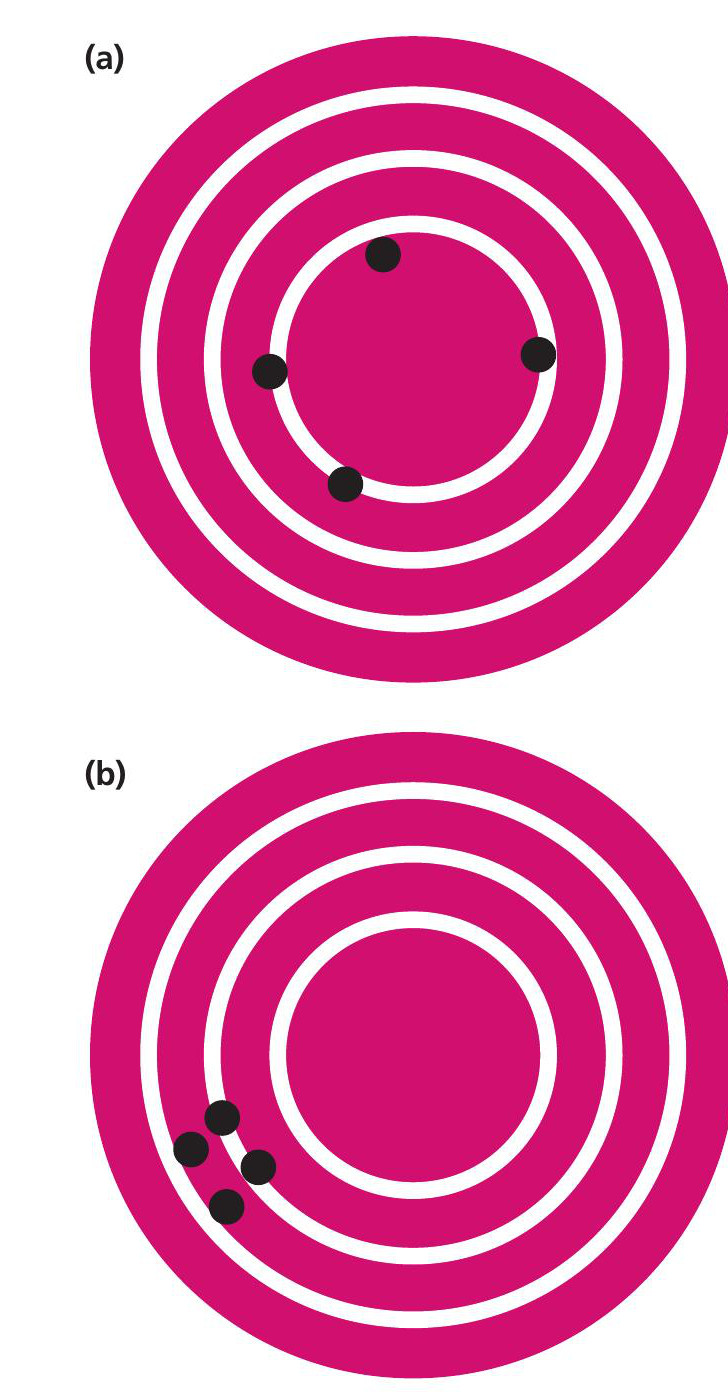
Figure 1 Accuracy vs precision. (a) High accuracy, but low precision (no clustering). (b) High precision (clustering) but low accuracy (off target)
When collecting geographical data researchers try to get the best data they can. This means that any analysis and conclusions made from the data are more likely to be reliable and trustworthy. But data can be unreliable or even unrepresentative. Factors such as too small a sample can be key issues, along with inaccuracies in the way the data were collected (such as equipment or operator error).
The reliability, accuracy and validity of first-hand fieldwork data should always be questioned and considered. Write-ups can make sweeping claims such as:
Your organisation does not have access to this article.
Sign up today to give your students the edge they need to achieve their best grades with subject expertise
Subscribe




